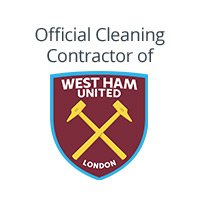
Kerosene Spill Cleaning
- Can clean up standard and environmental spills
- On site within hours in an emergency
- Offer environmental consultancy
- Fully permitted to handle and dispose of oil
You’re in good company. We’ve worked with the following commercial clients… View all







Kerosene Spill Clean Up Service
Our oil spill specialists are available nationwide, 365 days a year, including bank holidays. They're fully qualified to clean up kerosene spills on domestic, commercial and industrial properties. Call 0208 066 0360 to find out how we can help you.
When a kerosene spill occurs, you must contact oil spill cleaning specialists immediately.
Our fully trained specialist teams have the expertise and state-of-the-art equipment to clean up all traces of the kerosene whether it's on a hard surface, on soil, on land or in water, and then dispose of the waste.
We can also guide you through every step you need to take following a spill, including contacting the Environment Agency and your insurance company, so you can get back to normal in the most efficient, least stressful way.
Call 0208 066 0360 to get in touch with our helpful team. No matter where you are in the UK, we can be on site in a matter of hours.

Speak with me today,
I’m here to help
By asking you a few questions either via phone or email I can immediately provide a realistic estimation of the cost.
Emergency Hotline
0208 066 0360
Helpline open 24 hours a day, 7 days a week
When calling please have
the following ready:
- Your Name
- Company Name (if applicable)
- Site Postcode
- The problem you're having
- Email Address
Get a Quote
FAQs
The basics
Can I clean up an oil spill myself?
You should never attempt to clean up an oil spill yourself.
- Oil is very dangerous to be exposed to. If you try to clean it up, you may inhale its toxic fumes or get some on your skin which can lead to serious health problems. Exposure to kerosene, for example, can lead to comas, heart and lung problems and skin burns.
- Some types of oil are flammable, like kerosene and petrol, and pose a fire hazard. They must be cleaned up thoroughly and quickly or the site could continue to be dangerous.
- You could make the spill worse. Digging up oil that’s sunk into soil, for example, may cause it to go down further into the ground which will make clean up longer and more challenging. Using detergents on an environmental spill can also cause more pollution.
- The waste will need to be disposed at a hazardous waste collection site. Disposing of hazardous waste is best left to professionals who understand all the relevant regulations and can do it safely.
What should you do if oil goes down a drain?
You should never pour oil down the drain, nor throw it in the bin. It must be disposed at a specialist facility in a particular way for the specific type of oil.
If oil does go down the drain, we can help. Our specialist technicians can quickly remove the oil from your drains and dispose of the oil correctly.
How quickly should the oil spill be seen to?
The oil spill should be treated within 24 hours to avoid the oil spreading. If the oil has spilled where it can cause environmental damage, you will only have a limited time to prevent its effects, so you must act quick when oil spills.
What size of spills do you cover?
We cover all sizes of oil spills. Naturally, some incidents may take longer for us to clean up than others.
Technologies used
Will the chemicals used to clean the oil cause further environmental damage?
Though our chemicals should be carefully administered, they'll cause no further damage to the environment. We aim to make our procedures as eco-friendly as possible.

Our experts can arrive on site within 60 minutes
- COVID-19 secure
- Nationwide coverage, available 24/7
- Able to arrive within 60 minutes of your call
- Free survey provided prior to quotation
- Emergency response team
- Offer a bespoke service designed to suit all your needs
- All technicians hold professional health and safety qualifications, including BICSc, IOSH, IPAF & Safe Contractor
We’re fully accredited
We place best practise, professional expertise and health and safety at the core of our business. We’re fully compliant with all legal obligations. You can view a list of our accreditations below, or visit our Health & Safety page for more information.







Whether there’s been a heating oil leak in the garden or a spill from a storage tank in the workplace, our oil spill specialists can quickly make the area safe again.
What should you do when kerosene spills on your residential property?
- Contact an emergency response oil spill clean up company immediately – they will undertake spill containment and carry out an on-site assessment
- If the oil has spilled on soil or land, or has gone into a body of water like a pond, stream or river, you must then contact the Environment Agency on their 24-hour emergency hotline: 0800 80 70 60
- Contact your insurance company
What should you do when kerosene spills in your workplace?
- Raise the alarm and call the appropriate authorities
- Evacuate everyone from the site
- Take roll call to identify any missing persons
- Wear gloves, masks, boots and other personal protective equipment if you have to re-enter the area
- If safe to do so, contain and control the source of the spill with absorbent materials
- Cover nearby drains to stop the oil spreading to local water supplies or causing environmental contamination
Our kerosene spill clean up process
If you're dealing with a standard spill (kerosene has spilled on a hard surface), our technicians will:
- Contain the spill and perform an on-site assessment of the spill and its environmental impact
- Use specialist methods to identify the specific type of oil that has spilled
- Remove surface oil and utilise an industrial-grade agent on surface contamination and drainage implications
- Deep clean the area with our state-of-the-art equipment
- Contain any waste securely for off-site disposal
- Issue you a decontamination certificate to confirm your site is safe again
If it’s an environmental spill (kerosene has spilled on soil or land or in water), they'll:
- Contain the spill and allocate you a dedicated spill manager – they'll stay with you throughout the entire clean up process
- If a heating oil tank is leaking, extract any remaining kerosene and place down protection absorbents to prevent further spread of the oil
- Bring an environmental consultant on site to sample and test the soil, and determine the phases of work that are required to clean up the spill
- Carry out the works which will be overseen and validated by the environmental consultant
- Test the area to ensure all traces of oil are gone and place any residue aside for proper disposal
- Issue you a decontamination certificate to ensure your site is safe again
- Restore the affected area to how it was before the spill by reinstating the soil
We're proud to offer environmental consultancy
You'll be allocated an environmental consultant who will attend the site after we've contained the spill to assess the damage caused by the kerosene and determine the best course of action to clean it up.
Environmental consultants are an impartial party that ensure our team are fully aware of the impacts of the spill they're dealing with, and are carrying a thorough, eco-friendly heating oil spill clean up.
All our solutions and tools comply with the environmental laws and protections in place. Throughout the clean-up process we'll work with the Environment Agency to provide updates and reports to ensure you are compliant, as well.
What are the signs of a kerosene spill?
If you have a heating oil tank, you should be aware of the signs of a heating oil spill so you can catch one early and minimise its impacts.
- There's a strong smell of petrol, solvent or oil
- There are black stains and dead plants around your heating oil tank
- There's been a sudden increase in the amount of fuel you’re using
What causes domestic heating oil tank leaks?
It can be caused by a wide range of problems including failure to the tank body, damage to the tank and damage or wear-and-tear of fuel feed lines. A problem with your boiler, like the flexible hoses, can cause a leak, too.
Both metal and plastic tanks are vulnerable to damage and therefore leaks; metal, for example, can rust through, whereas plastic tanks may split, often due to age or wear-and-tear. A lot of spills occur when oil is being delivered, as well.
Our contact details
Our team is available 24/7, 365 days a year to take your call in the event of an emergency. Call 0208 066 0360 to find out how we can help you. We're also available via email at enquiries@icecleaning.co.uk.




-RGB-small.1707319151.jpg)




















